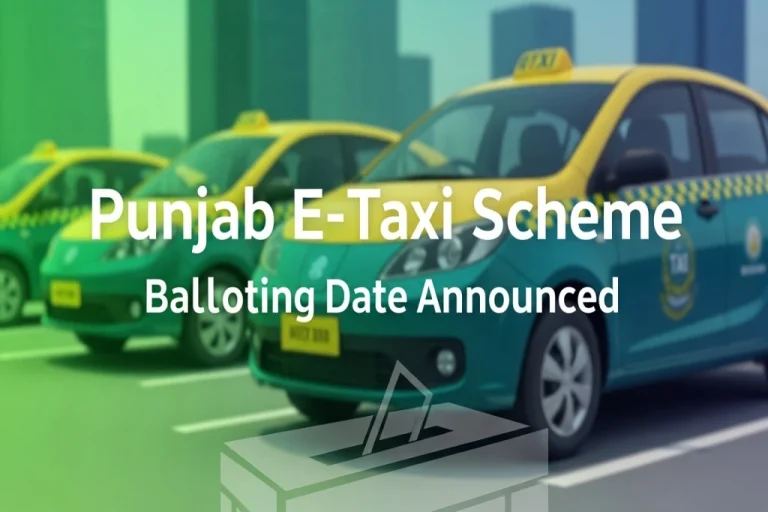The Punjab government has officially already declared the anticipated date of balloting its long awaited Electric Taxi Scheme. The provincial officials have stated that the balloting will be conducted during the final week of November 2025 since the number of applicants keeps increasing at a phenomenal rate. The scheme has been well received and over 28,000 individuals have been applying till now.
The whole data of applicants has been already compiled and sent to the Bank of Punjab to take part and supervise the balloting. Via the draw, the successful applicants will be notified. They will then be asked to make their down payments in order to secure their vehicles. According to the government representatives, following payment, the chosen persons will have their electric taxis within three to four months, which will be implemented in a gradual manner.
The Punjab E-Taxi Scheme, which was launched on September 17, 2025, is intended to modernize transportation and assist in self-employment of the citizens. The show provides interest-free financing that lasts up to five years; hence, the applicants are able to own green vehicles without the need to pay huge sums of money. During the initial stage, 1,100 electric taxis will be given out by the government to the population that will be imported into the country by China, of which 30 will be given to women drivers to ensure the inclusion of gender in the transport sector.
The Punjab government is also developing a special electric vehicle charging system through the province to make the initiative successful and long-term sustainable. Moreover, an online portal has been developed whereby an easy track of applications, records and future updates will take place. This online platform assists the entire process making it hassle-free on the part of the applicants and making the administration work more efficiently.
With the coming of the balloting date, the interest of the scheme is on the increase. It is presumed that the E-Taxi initiative will contribute to the removal of pollution in cities, the development of clean transport, and the emergence of new income opportunities of thousands of families in Punjab.







